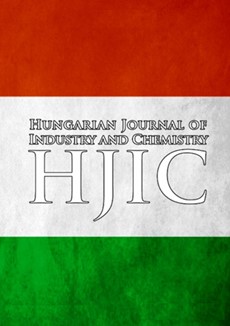VARYING POROSITY KINETIC MODEL FOR DIRECT AND REACTIVE SOLID-LIQUID EXTRACTION
DOI:
https://doi.org/10.1515/hjic-2002-17Keywords:
solid-liquid extraction, vegetable alkaloid recovery, chemical reaction, porous medium, liquid penetrationAbstract
A mathematical model is presented accounting for the effects of porosity increase during extraction from vegetable materials. The relation between the porosity and the total extract release is derived from the solid phase volume balance. The model will be used to interpret the experimental data for alkaloid recovery from leaves and radix of the medicinal plant Atropa Belladonna. The extractability has been determined by dissolution of alkaloidic salts in polar solvent (direct extraction) and by alkaline transformation of salts to bases in non-polar solvent (reactive extraction). Supporting experiments were performed in order to estimate the kinetics of solvent penetration. For inert conditions, the estimated effective diffusivities are nearly equal to those obtained under reaction conditions. The resorted differences in the diffusivity as a result of the porosity changes remain lower in respect to the strong influence of the different initial pore structure of the two raw materials.Downloads
Published
2002-10-12
Issue
Section
Articles
How to Cite
VARYING POROSITY KINETIC MODEL FOR DIRECT AND REACTIVE SOLID-LIQUID EXTRACTION. (2002). Hungarian Journal of Industry and Chemistry, 30(2), 95-101. https://doi.org/10.1515/hjic-2002-17




